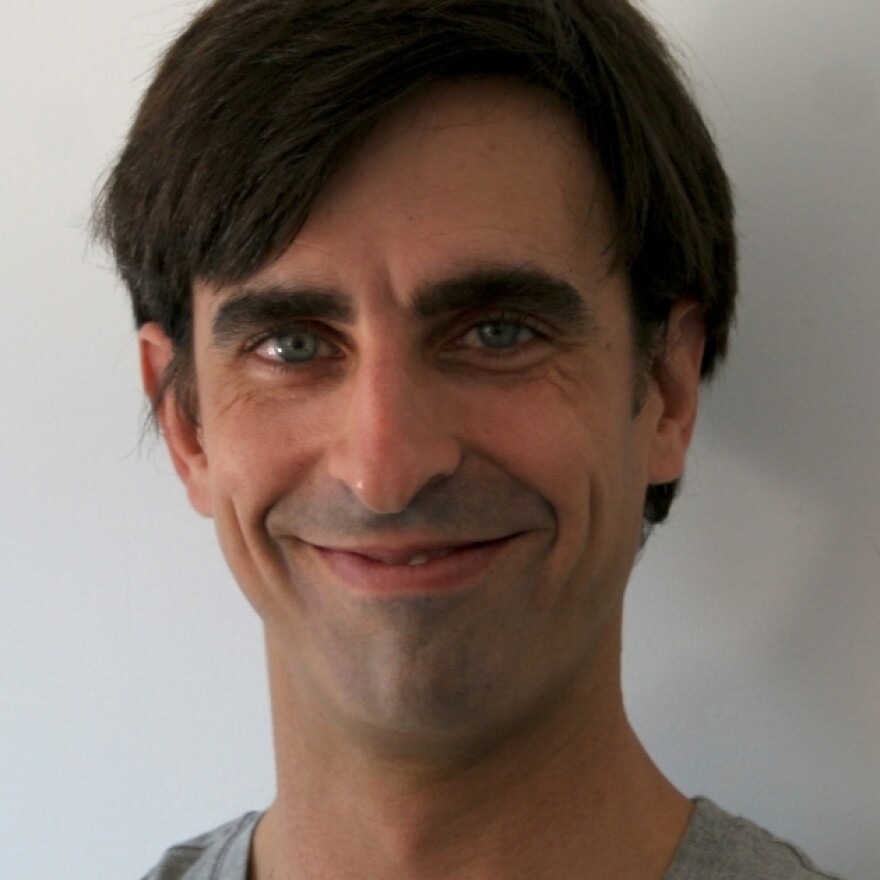Amy Chua, author of the controversial parenting memoir Battle Hymn of the Tiger Mother, has been named by Time magazine as one of the 100 most influential people in the world. Like many Americans, I had recently spent a great number of hours talking with virtually everyone I know about Chua's book.
Since many of those conversations focused on what some took to be stereotypes of Asian-Americans as hyperachieving do-gooders, I was happy that they gave me an opportunity to bring up a decidedly different book by a female Asian-American author — Sandra Tsing Loh's manic 2008 memoir, Mother on Fire: A True Motherf%#$@ Story About Parenting.
If Battle Hymn of the Tiger Mother seemed to suggest that all Asian-Americans do is practice the violin and study quadratic equations, Loh's book offers a kind of antidote — one that involves averagely performing kids, moms who break wind and drink a lot of rum and coke, and families that muddle along just like everyone else.
The book takes place in the year of Loh's 42nd birthday, a year in which the Atlantic Monthly and public radio contributor saw her life begin to crumble. Part of this is a seemingly inevitable crisis brought on by the author's almost unbearably high-strung personality. The other part of it is that parenting has snuffed out her already fragile sense of self, her social life and eventually her doomed marriage. Everything Loh thought she had been — in her career, in her personal life, as a wife, a parent and a child herself — had come into question, and her sense of self-confidence was ebbing at a time when the only thing she was sure about — her family — needed her terribly. Specifically, her 4-year-old daughter, Hannah, hadn't been admitted to a school that Loh could either afford or stomach sending her to in the educational wasteland of Los Angeles.
And so begins Loh's search, not just for Hannah's future educational home, but for her own missing self. To understand what that self might look like, imagine an email sent to you at 2:30 in the morning written in ALL CAPS and liberally splashed with exclamation points. Picture Loh's minivan, a "rolling mildewed chariot of typhus" that her own children resist getting in because ants live inside the seats. Think of Loh's family, which she describes as "probably not dangerously gifted," meaning normal, in other words — and, like most normal families, even some Asian-American families, not hyperachieving do-gooders.

But what makes the book such a great read isn't that it captures normality, or the quality of Loh's writing. The narrative in Mother on Fire isn't shaped. In places, it doesn't even show signs of being proofread. But the force of it is so inflamed, so crazy-get-out-of-my-way-or-I-swear-I'll-run-you-over, that you have no choice but to sit down in one of her ant-filled seats and hope you survive.
Memoirists are often praised for being candid, but many settle for mere revealing instead of the kind of punishing scrutiny Loh inflicts on herself. Loh might be the mother of all oversharing memoirists, but as a result, when she approaches redemption — a process that begins by sending her daughter to a public school that initially terrifies the author — it doesn't feel forced or wanting, and when she says, "Everything I assumed about running my life is wrong," she really means it. Nothing is off the table. She's going all the way, whether you like it or not. And in the end, you can either turn your head away or appreciate the ride.
You Must Read This is produced and edited by Ellen Silva with production assistance from Rose Friedman and Lena Moses-Schmitt.
Copyright 2023 NPR. To see more, visit https://www.npr.org.


